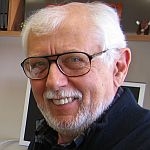 (HOST) According to commentator Tom Slayton, the poetry of ancient China is right at home in contemporary Vermont.
(HOST) According to commentator Tom Slayton, the poetry of ancient China is right at home in contemporary Vermont.
(SLAYTON) To translate the poets of ancient China with any accuracy, you have to adopt the consciousness of the poets themselves – to get inside their heads and understand the way they think.
David Hinton of Calais has been making that cultural journey for more than 20 years now and has translated into English some 15 books of Chinese poetry – which is the largest and longest tradition in world literature. He has won wide acclaim for his work and is regarded as one of the leading translators of Chinese literature in the country.
And what Hinton has discovered is that ancient China is not so far away from today’s Vermont.
"The poems are about landscape," Hinton says, "and not just looking at the landscape, but living in the landscape – pretty much the way we live in Vermont."
Also, the poems – by poets like Tao Chien, Tu Fu, Po Chu-I, and Li Po – are direct and accessible. Their language is straightforward, plain-spoken, and based in everyday human experience. In that they share the style and values of Vermonters – and rural people everywhere. They are deeply universal.
They express an ecological worldview that many Vermonters would recognize – that humankind is not the center of the universe – something separate and apart from nature – but an organic part of a unified, self-generating universe. Nature, in the ancient Chinese world view, isn’t everything other than human beings – humanity is deeply enmeshed in nature, woven into its fabric: what we do to nature, we do to ourselves.
Again, this is a view that would be familiar to many Vermonters.
David Hinton’s latest book of translations is his most comprehensive. It’s entitled "Classical Chinese Poetry" and is an anthology that brings together more than 3,000 years of this great literary tradition. It begins with "The Book of Songs," in 1500 BC and continues through the great poets of the Tang and Song dynasties, down to about 1200 AD. It samples more than 3,000 years of Chinese poetry and places it in context.
His aim, in translating the more than 500 poems in this new book, Hinton says, is to accurately render each poet’s characteristic voice, while at the same time maintaining the traditions of the genre – the clarity, accessibility, and profundity shared by all Chinese poetry.
That is no small aim, but I believe that Hinton accomplishes it handily – his book is both instructive and a pure delight to read. I’ve been sampling a few poems every night, and they always make me stop and think – and consider when my next walk in the woods might be.
What is David Hinton working on right now? Well you could call it a book of Chinese philosophy, but Hinton prefers to think of it in simpler terms. He says it’s really just a hike up a nearby mountain in Vermont – as an ancient Chinese poet might have experienced it.